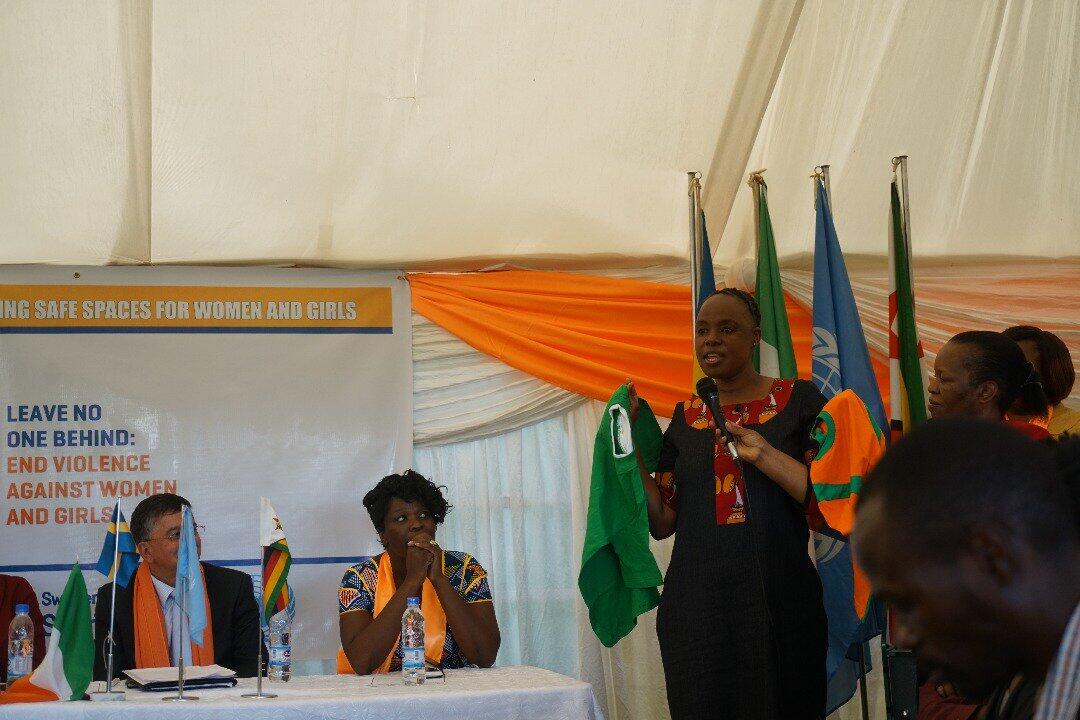For more than 3 years Hazvinei Chanachimwe (47) suffered domestic violence. Each time she went to report the matter to the police no action would be taken. The police officers had gotten used to seeing her and each time she reported they would call her husband to come and pick her up.
“We would go back home and the abuse would continue,” recounted Hazvinei.
One day while making a report a police woman reached out to her and Hazvinei narrated her story. The police officer directed Hazvinei to Musasa project, an organisation that provides support to survivors of Gender Based Violence.
“Before I came to Musasa I used to live a tearful life which made my life very painful,” says Hazvinei. “When I got there I felt I was in safe hands because I met hearty counsellors who offered me counselling. I also received medication and basic treatment as I was sick due to torture from my husband. They took me to the shelter and I stayed there for 3 and half months.”
While at the shelter Hazvinei acquired various skills such as sewing, cutting and designing, soap making, jam making and self-care as well. Today she is a qualified tailor and takes care of her 3 children.
“I can make any kind of clothes, school wear, work suits, hospital garments and protective wear and bags. I am happy…I was on the verge of suicide before I got help from Musasa”.
Experiences such as Hazvinei’s are all too common in Zimbabwe. The Zimbabwe Demographic Health Survey for 2015 confirms that violence against women and girls remains a huge problem with at least 1 in every 3 women having experienced physical violence since the age of 15. With support from development partners such as Irish Aid, Sweden and UKAid, the United Nations Population Fund is working with various implementing partners to provide services to survivor of Gender Based Violence around the country such as medical treatment, psycho social support and legal services.
“UNFPA greatly appreciates the support of partners such as Irish Aid to reach many women and girl with critical services. We hope to expand our services to reach more women and girls,” said UNFPA Deputy Representative Mr Yu Yu.


